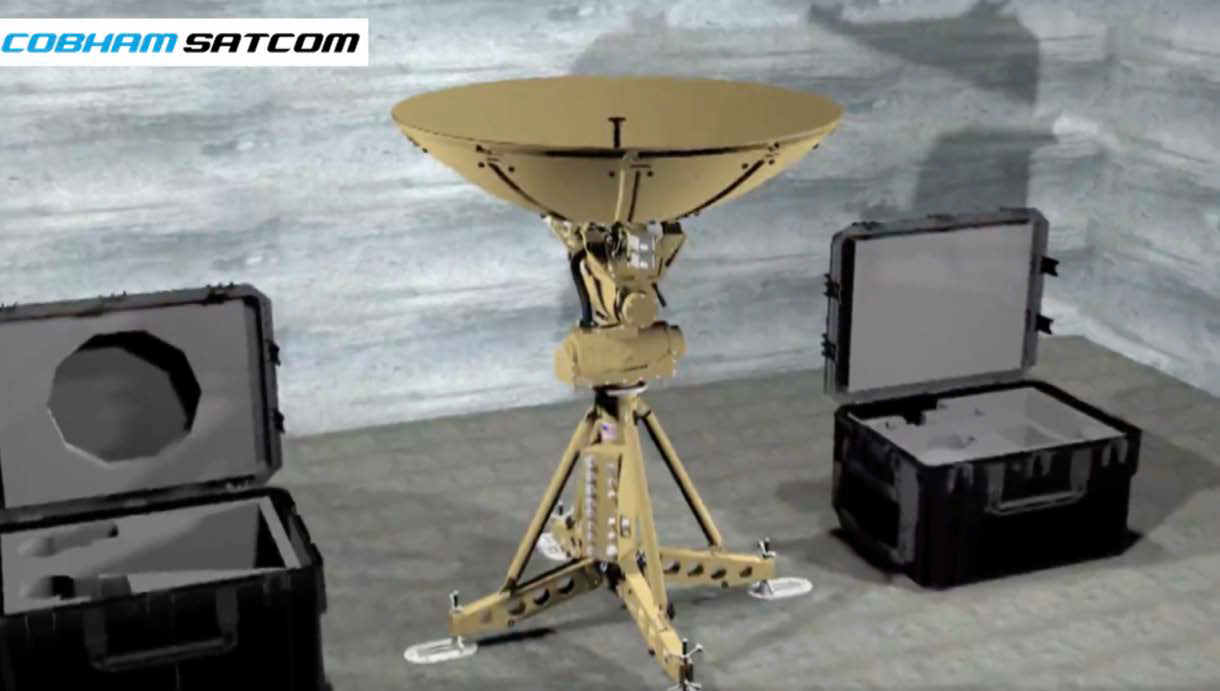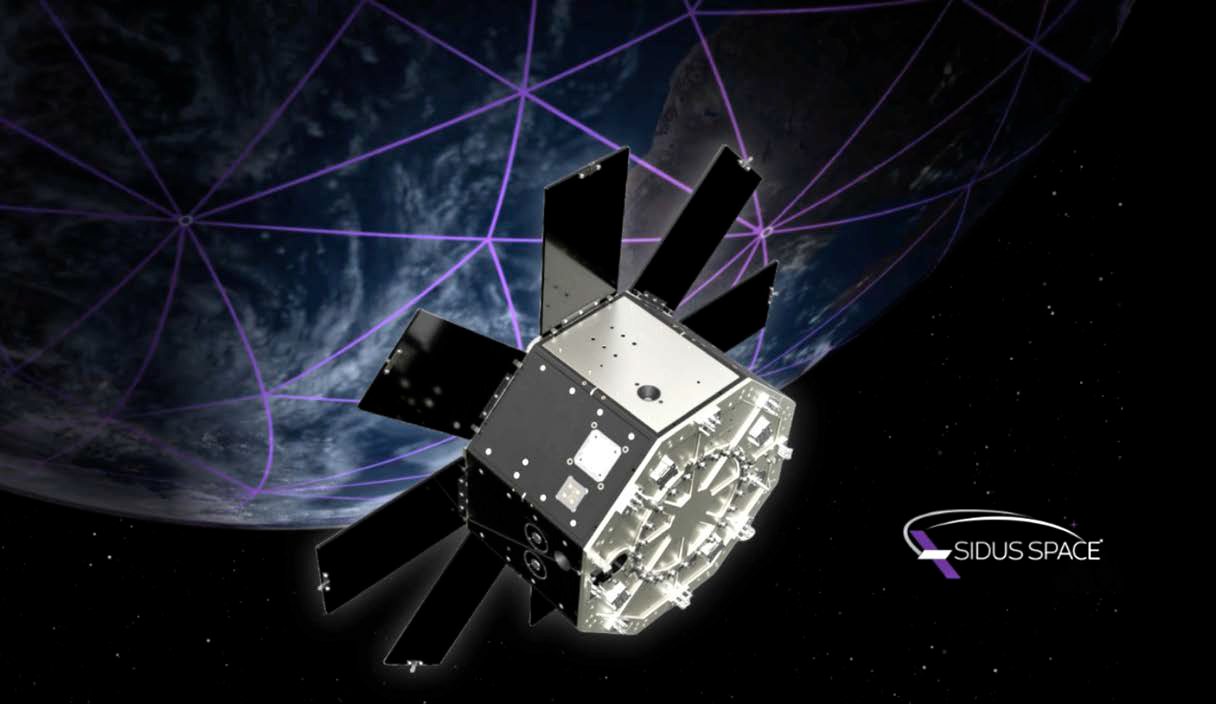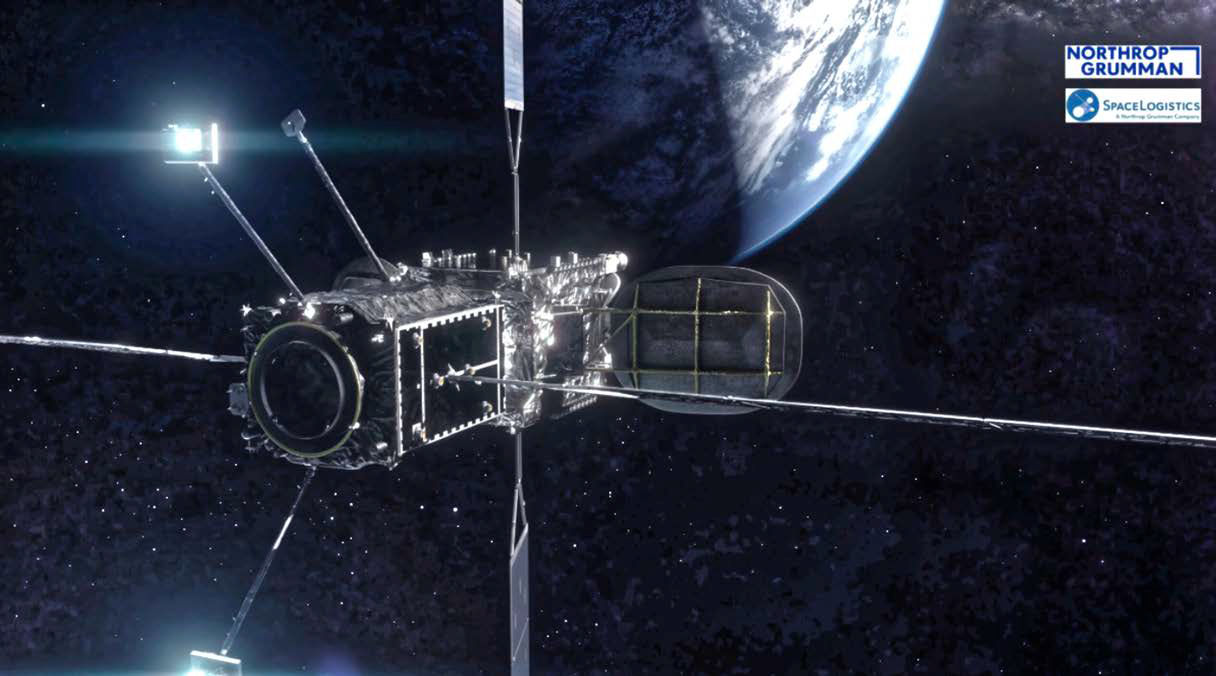Cobham Group has signed an agreement to sell Cobham Satcom to Solix Group, a leading investment company.
Cobham Group has signed an agreement to sell Cobham Satcom to Solix Group, a leading investment company. Cobham Satcom enables secure SATCOM in remote locations across land and sea. The company is uniquely positioned to leverage growth opportunities, particularly within the global government, defense, and maritime industries.
 With new, strong ownership that brings valuable experience from other investments in the maritime and government markets, Cobham Satcom expects to continue and fast-track its growth strategy in the coming years.
With new, strong ownership that brings valuable experience from other investments in the maritime and government markets, Cobham Satcom expects to continue and fast-track its growth strategy in the coming years.
The transaction is subject to customary regulatory approvals and is expected to be completed within the calendar year, once these approvals have been obtained.
“This transaction will enable us to accelerate our strategy and continue to develop and deliver best-in-class connectivity and safety solutions to our global customer segments,” said Christophe Duret, CEO of Cobham Satcom. “Our capabilities and technology leadership within the maritime industry have been well established and recognized since the 1950s. In recent years, we have also demonstrated our ability to apply these competencies to develop new, critical market-leading SATCOM solutions for government and defense customers.”
USSF launches Orbital Watch to strengthen the U.S. commercial space industry
The U.S. Space Force’s (USSF) Space Systems Command (SSC) Front Door office has launched a new initiative that is designed to enhance unclassified threat-information-sharing with commercial space companies.
 On March 21st, Front Door launched Orbital Watch, its rapid communication platform, and released an unclassified threat fact sheet authored by Headquarters Space Force Intelligence to more than 900 commercial providers in the Front Door’s catalog. As space threats continue to evolve—from cyber intrusions and electronic warfare to adversarial on-orbit activities—Orbital Watch intends to communicate critical unclassified threat information to ensure commercial providers can build resilient systems and mitigate threats.
On March 21st, Front Door launched Orbital Watch, its rapid communication platform, and released an unclassified threat fact sheet authored by Headquarters Space Force Intelligence to more than 900 commercial providers in the Front Door’s catalog. As space threats continue to evolve—from cyber intrusions and electronic warfare to adversarial on-orbit activities—Orbital Watch intends to communicate critical unclassified threat information to ensure commercial providers can build resilient systems and mitigate threats.
This initiative is in direct alignment with the DoD Commercial Space Integration Strategy and the USSF Commercial Space Strategy, as well as congressional guidance,” said Col. Richard Kniseley, senior materiel leader, SSC Commercial Space Office. “Front Door has vast ties to industry right now and a clear mechanism for communicating threat information. The goal is sharing threat information in a timely manner, and Front Door is well equipped to do that.”
 In an era of increasing threats, Orbital Watch is the culmination of partnerships with various organizations within the government intelligence community, such as the Director of National Intelligence, Office of the Secretary of Defense for Space Policy, Space Force Intelligence Office and the Commercial Integration Cell – a commercial integration cell within the U.S. Space Command. Front Door is taking decisive steps to strengthen collaboration with commercial space providers, improve collective situational awareness, and enhance overall resilience in the space domain.
In an era of increasing threats, Orbital Watch is the culmination of partnerships with various organizations within the government intelligence community, such as the Director of National Intelligence, Office of the Secretary of Defense for Space Policy, Space Force Intelligence Office and the Commercial Integration Cell – a commercial integration cell within the U.S. Space Command. Front Door is taking decisive steps to strengthen collaboration with commercial space providers, improve collective situational awareness, and enhance overall resilience in the space domain.
Front Door is moving out on this essential effort,” said Victor Vigliotti, director, SSC Front Door. “We are providing our commercial partners the information needed to increase system resilience and mitigate threats, both of which are foundational to the successful integration of commercial space capabilities in national security space architectures. Front Door is the USSF organization with the technological capability and authority to disseminate unclassified threat information to a growing catalog of commercial space providers in a timely and organized manner.”
Orbital Watch will roll out in phases. Its initial operating capability, or beta phase, is focused on outbound dissemination on a quarterly basis that provides industry with assessments of evolving risks in the space domain. As Front Door works to identify and consolidate additional sources of unclassified threat information, Orbital Watch’s cadence of dissemination will increase, ensuring commercial operators receive timely and actionable threat information.
The full operational capability phase of Orbital Watch will introduce a secure “Commercial Portal,” enabling two-way threat information sharing between the government and commercial space providers deemed critical to Space Force operations.
The launch of Orbital Watch truly marks the beginning of a new age for threat information sharing and solves a critical challenge for both the government and industry,” said Vigliotti. “U.S. adversaries are moving fast; we need to move faster. Orbital Watch is essential in developing collaborative and dynamically hybrid security architectures, which starts with commercial partners’ security and resiliency with lasting effects that will ensure our warfighters and operations remain protected from growing space threats.”
Sidus Space + Reflex Aerospace sign MoU for global satellite solutions venture
Sidus Space (NASDAQ: SIDU) has signed a Memorandum of Understanding (MOU) with Reflex Aerospace GmbH during the Space Foundation’s 40th Space Symposium in Colorado Springs, Colorado—this agreement formally establishes the framework to form a U.S.-based Joint Venture (JV) focused on delivering flexible, cost-effective, and high-performance solutions to meet diverse customer needs while strengthening their presence in global markets.

Under the agreement, Sidus and Reflex will jointly develop and manufacture integrated satellite platforms leveraging Sidus’ mission operations, technology integration and advanced manufacturing expertise alongside Reflex’s rapid satellite development capabilities and high-performance components. The collaboration will target U.S. and European markets across defense, commercial, and government sectors, with both companies contributing to production, business development, and market distribution.
The joint venture will focus on multi-orbit missions in LEO, MEO, and small GEO; In-Orbit Demonstration (IOD) and In-Orbit Validation (IOV) campaigns; and advanced space applications such as LIDAR, software-defined radio (SDR), on-orbit surveillance, and refueling missions.
Additionally, the companies intend to competitively pursue major government space architecture programs by optimizing the supply chain and co-developing responsive satellite systems.
As part of the MoU, Sidus will provide integration and test (AI&T) facilities in Cape Canaveral, Florida, and will contribute mission management, operations, and proprietary subsystems such as Orlaith™ AI Ecosystem featuring FeatherEdge™ hardware for data process and analysis, Cielo™ software for space-based data and insights, VPX OBC high performance on-board computer, and advanced manufacturing solutions.
“This partnership strengthens our global position as a full-stack space services provider,” said Carol Craig, Founder and CEO of Sidus Space. “By combining Sidus’ heritage in mission management, in-orbit operations, and space hardware manufacturing with Reflex Aerospace’s rapid-response satellite design and subsystem technologies, we’re creating a powerful platform to deliver timely, customized solutions to meet mission-critical needs across multiple orbits.”
“Partnering with Sidus accelerates Reflex’s vision to deliver scalable satellite systems and meet the rising demand for high-performance, rapidly-deployable spacecraft,” said Walter Ballheimer, CEO of Reflex Aerospace.
Northrop Grumman
A MIssion Extension Vehicle (MEV) developed by Northrop Grumman Corporation]s (NYSE: NOC) Space Logistics LLC has undocked with Intelsat’s S-901 satellite, thereby completing its life extension service—this marks the first undocking between two commercial spacecraft in the GEO graveyard.
 Northrop Grumman achieves 1st undocking
Northrop Grumman achieves 1st undocking
between 2 commercial spacecraft in GEO MEV-1 has provided five years of life-extension services to IS-901, allowing Intelsat to operate this space-based asset beyond its design life.
In 2020, MEV-1 successfully proved docking with IS-901 was possible in the GEO graveyard orbit and brought IS-901 back into operation in GEO. Now that life-extension services are complete, MEV-1 released the IS-901 satellite back into the GEO graveyard and is relocating to the next servicing mission. Northrop Grumman is currently the only proven provider of life-extension services for satellites in GEO—redefining the boundaries of resiliency, flexibility and capabilities across government, commercial and national security customers.
MEV-1 performed the first-ever, on-orbit commercial spacecraft docking with IS-901 in the graveyard orbit before reducing the satellite’s inclination and bringing it back into operation in GEO in 2020.
Since the technology was successfully proven in graveyard orbit with MEV-1, MEV-2 docked with Intelsat’s IS-10-02 directly in GEO in 2021 with no reported disruption in service during the docking.
Northrop Grumman’s Space Logistics has provided reliable service to the satellite operator for MEV-1’s entire mission.
MEV-2 will remain docked to Intelsat 10-02, providing life-extension for an additional four years—nearly doubling service from the original extension contract.
Rob Hauge, president, Space Logistics, said, “The first-of-its kind technology that extended a satellite’s life is paving the way for an entire infrastructure of future on-orbit satellite servicing missions for a variety of customers. We are continuing to invest in next-generation capabilities to deliver the most technologically advanced servicing capabilities to support and maintain new and existing space-based assets.”
About Northrop Grumman Space Logistics Northrop Grumman’s Space Logistics provides on-orbit satellite servicing to GEO satellite operators using its MEVs, which dock with customers’ existing satellites to provide propulsion and attitude control needed to extend satellite service lives. Starting next year, Space Logistics next-generation systems will be able to provide expanded satellite services including on-orbit repairs, upgrades, refueling, debris removal, assembly and manufacturing.

